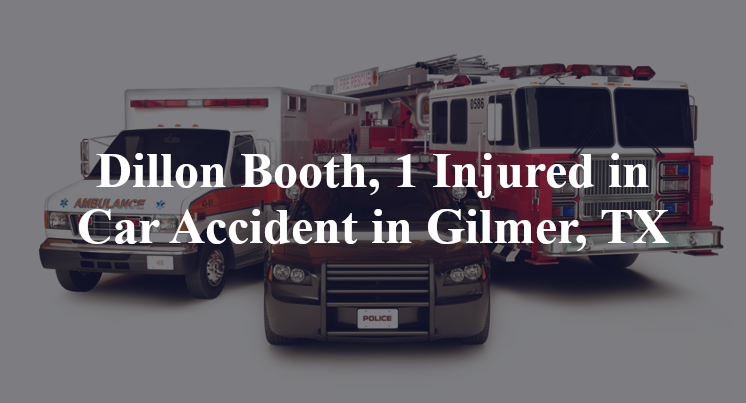Dillon Booth, 1 Injured in Car Accident in Gilmer, TX
Upshur County, TX — August 4, 2024, Dillon Booth and another man were injured in a car accident at approximately 9:30 p.m. along U.S. 271.
According to authorities, 24-year-old Dillon Booth and a 27-year-old man were traveling in a westbound Chevrolet Silverado pickup truck making a right turn from S.H. 300 onto U.S. Highway 271 when the accident took place.

As the pickup was making the turn, officials state that, for as yet unknown reasons, it rear-ended the Cadillac Calais ahead of it. Booth and the man who had been in the pickup truck with him suffered serious injuries over the course of the accident, according to reports. They were each transported to local medical facilities by EMS in order to receive necessary treatment. Additional details pertaining to this incident are not currently available.
Commentary by Attorney Michael Grossman
When I read about a crash like the one that left Dillon Booth and another person seriously injured, I know that many will assume it was simply a case of driver error. While rear-end collisions often seem straightforward, my experience has shown me that they can be far more complex than they appear. Instead of making assumptions, it’s important to ask the right questions to ensure a thorough investigation. To that end, there are three critical questions that need to be considered.
First, did the authorities conduct a thorough investigation? While rear-end collisions are often attributed to the trailing driver, investigators should consider whether external factors played a role. Were there sudden or unexpected traffic conditions that made the collision unavoidable? Was the lead vehicle’s brake system functioning properly? Did the crash occur in an area with poor visibility, road hazards, or other contributing factors? The depth of the investigation will determine whether all possible explanations are explored or if assumptions are made without fully examining the evidence.
Second, has anyone looked into whether a vehicle defect contributed to the crash? If the pickup truck failed to stop in time, it’s important to examine whether mechanical issues—such as brake failure or a malfunction in the vehicle’s collision avoidance system—may have played a role. Additionally, the lead vehicle should also be examined to determine whether its brake lights were functioning properly. Unfortunately, vehicle defects are rarely investigated unless someone specifically pushes for it. If the vehicles are quickly repaired or scrapped, valuable evidence could be lost before it’s properly analyzed.
Lastly, have investigators gathered all available electronic data? Most modern vehicles are equipped with event data recorders (EDRs), which capture crucial details such as speed, braking, and steering input in the moments leading up to a crash. This data could help clarify whether the driver attempted to stop or if there was a delay in braking. Additionally, surveillance footage from nearby businesses or dashcams from passing vehicles may provide valuable context about how the crash unfolded. If this information isn’t secured quickly, it may no longer be available, making it more difficult to determine the true cause of the accident.
At the end of the day, answering these questions could be essential to understanding what really happened. While rear-end crashes may seem straightforward, a full and fair investigation is necessary to ensure that all contributing factors are considered. A complete review of all possible causes—including road conditions, vehicle defects, and electronic data—is the least that can be done to ensure that those affected by the crash receive the answers they deserve.

*We appreciate your feedback and welcome anyone to comment on our blog entries, however all visitor blog comments must be approved by the site moderator prior to showing live on the site. By submitting a blog comment you acknowledge that your post may appear live on the site for any visitors to see, pending moderator approval. The operators of this site are not responsible for the accuracy or content of the comments made by site visitors. By submitting a comment, blog post, or email to this site you acknowledge that you may receive a response with regard to your questions or concerns. If you contact Grossman Law Offices using this online form, your message will not create an attorney-client relationship and will not necessarily be treated as privileged or confidential! You should not send sensitive or confidential information via the Internet. Since the Internet is not necessarily a secure environment, it is not possible to ensure that your message sent via the Internet might be kept secure and confidential. When you fill out a contact or comment form, send us an email directly, initiate a chat session or call us, you acknowledge we may use your contact information to communicate with you in the future for marketing purposes, but such marketing will always be done in an ethical way.